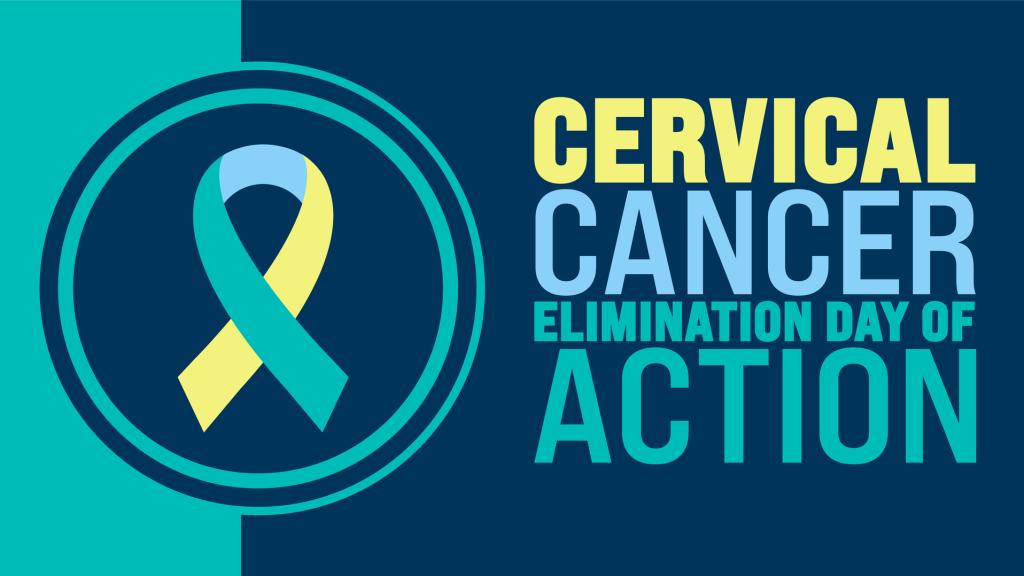International Cervical Cancer Elimination Day: the experts share their views
International Cervical Cancer Elimination Day is held on 17 November to raise awareness among governments, institutions and citizens about the importance of prevention against HPV-related diseases. This engagement dates back to 2020, when the World Health Organisation (WHO) launched a call to action to make institutions and the general public aware of the need for a sustained and shared commitment to eliminate HPV-related cancer as a major public health problem by 2030. To celebrate this important anniversary, the Region of Sardinia hosted a major event at the Regional Council, bringing together public health experts, institutional representatives, the Italian League for the Fight against Tumours (LILT) together with representatives of students and teaching staff from some of the Region's schools, to discuss the strategies in the fight against cervical cancer. The event, epitomising an integrated approach, showed how collaboration between different sectors can make a significant impact on community health.

Since 1995, when the International Agency for Research on Cancer (IARC) formally linked HPV infection to the development of ano-genital cancers, the scientific community has made enormous progress in the understanding and management of this disease. The HPV vaccine, introduced in 2006, marked a breakthrough in primary prevention, demonstrating the ability to reduce cases of precancerous lesions and HPV-related cancers by up to 90% in populations with high vaccination coverage.
Cervical cancer, in fact, is a neoplasm associated with persistent HPV infection, responsible for 99% of diagnosed cases globally. Despite progress in prevention, the World Health Organisation (WHO) points out that this disease continues to be a significant public health problem, with over 600,000 new cases and 340,000 deaths each year. The HPV vaccine is a key tool for primary prevention, offering protection against the most common oncogenic strains, including HPV-16 and HPV-18, which are responsible for 70% of cervical cancer cases.
International recommendations highlight the importance of vaccine administration between the ages of 9 and 14, before exposure to the virus, to maximise its effectiveness, and in this regard, recent studies have shown that vaccine programmes can lead to a reduction in cervical cancer incidence of up to 90% in populations with high coverage rates.
However, despite the proven effectiveness, vaccination coverage in Italy has margins for improvement, with percentages below the targets set by the National Vaccine Prevention Plan 2022-2025, and, from this perspective, targeted awareness-raising actions and cooperation between health institutions, schools and associations are essential in order to bridge this gap, promoting greater awareness.
Alongside vaccination, screening programmes are a pillar of secondary prevention. Well-established techniques, such as the Pap test and HPV-DNA testing, enable early detection of precancerous or cancerous lesions, improving treatment options and reducing mortality. The introduction of organised screening strategies in Italy has led to a significant decrease in the incidence of cervical cancer, however, there remains a proportion of the female population that does not adhere regularly, often for reasons related to misinformation or logistical difficulties.
In this regard, the Italian League for the Fight against Tumours (LILT) has stood out for years for its commitment to cancer prevention, with an approach that combines health education, psychological support and advocacy. Through grassroots initiatives and media campaigns, LILT has contributed to spreading the culture of prevention, making crucial information accessible to both young people and adults.
In the Sardinian context, LILT played a decisive role in organising the event, strengthening the link between institutions, experts and the community. The main initiatives included:
- Educational programmes in schools, to make adolescents aware of the risks associated with HPV and the importance of vaccination;
- Counselling services, to support families in making an informed choice to join prevention programmes;
- Collaborations with local authorities, to facilitate access to screening services in marginal areas or areas with limited resources.
These interventions, in addition to promoting preventive behaviour, contribute to reducing inequalities in access to health services, a crucial aspect in achieving the WHO targets.
On the International Day for the Prevention of Uterine Cervical Cancer, the Region of Sardinia stood out for its integrated approach to awareness-raising. The event, organised in collaboration with institutions, experts and schools, highlighted the importance of intergenerational and multi-sectoral dialogue to promote prevention.
Among the topics discussed, particular emphasis was placed on the need to increase vaccination coverage among adolescents and to increase access to screening for adult women. The initiative highlighted how cervical cancer prevention is not only a health issue, but also a cultural and social one, requiring a collective commitment to overcome prejudices and obstacles.
During the event, held in the Council Chamber of the Sardinian Regional Council on Friday 15 November at 11.00 a.m., in the presence of the Councillor for Hygiene and Health - the Honourable Armando Bertolazzi, the Councillor for Education - the Honourable Ilaria Portas, the President of the Regional Council - Dott. Piero Comandini, the President of the VI Commission - the Honourable Carla Fundoni and the President of the II Commission - the Honourable Camilla Soru, were attended by student representatives and teaching staff from the Liceo ‘De Castro’ school in Oristano, the ‘Devilla’ Technical School in Sassari and the Martini Institute in Cagliari, who were able to attend the speeches by experts in the field: Dr. Alfredo Schirru - Lilt Regional Coordinator; Dr. Francesca Maria Anedda - Regional President of the S.It.I. Sardinia Section; Dr. Gabriele Mereu - Head of the Vaccination Structure of ASL 8 CA; Prof. Paolo Castiglia - Head of the Complex Operative Unit of the Hospital Medical Directorate, Hygiene, Epidemiology and Hospital Infections and Dr. Antonella Arghittu - University Researcher in General and Applied Hygiene at the University of Sassari.
The experts gave speeches on the topics of the natural history of the disease, epidemiology, the importance of primary (vaccination) and secondary (screening) prevention interventions, together with aspects of vaccination communication and counselling in the adolescent and young adult cohort.
Moreover, during this event participants were able to watch an awareness-raising video on the importance of HPV vaccination, produced by MSD under the patronage of the Italian Hygiene Society.
The elimination of cervical cancer by 2030, as sought by the WHO, is a goal that can only be achieved by strengthening prevention policies, equitable access to health services, and constant awareness-raising activities. In this context, the Region of Sardinia's initiative represents a virtuous model, capable of combining the commitment of institutions with the involvement of civil society. Investing in prevention today means building a future free from a preventable and potentially eradicable disease.
The Region of Sardinia, with the support of LILT and local institutions, has demonstrated how an integrated and participatory approach can make a difference, not only in improving public health, but also in building a culture of prevention that involves all generations.
Investing in prevention today means building a future in which cervical cancer is relegated to medical history, a history in which collective determination and innovation have prevailed.
On this occasion, VaccinarSinSardegna.org, reminds users of the importance of a consciously chosen adherence and, in support of the activities envisaged by the Free Programme 13 - PL 13 of the Regional Prevention Plan 2020-2025, is at the service of all institutions and the general public to promote initiatives, events and activities implemented to improve citizen compliance and anti-HPV vaccination coverage.
The Region of Sardinia, in fact, has deemed it necessary to schedule strategic and structured interventions focused on analysing the real needs of the population and on understanding the barriers to vaccination, especially in such a difficult-to-reach audience as adolescents and young adults, towards whom the anti-HPV vaccination is mainly directed. Thanks to a timely and conscious vaccination, young people can in fact interrupt the chain of infection at the origin and prevent the onset of serious and fatal diseases. This extensive chapter in the regional policies for prevention is strongly supported by vaccinarsinsardegna.org.
Attached is the video of the event.
Stay tuned to our website so as not to miss future updates.



